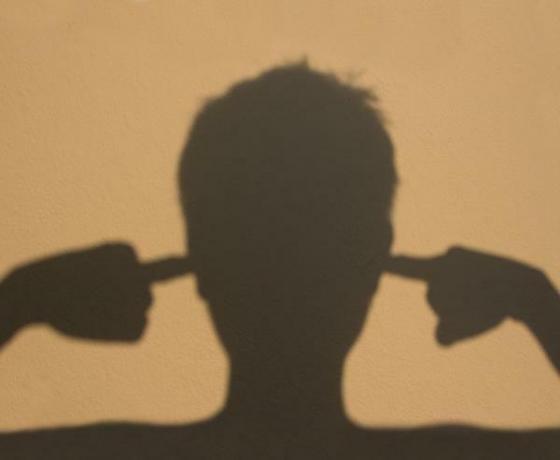
After getting angry with someone, have you treated them with indifference? Or the other way around, after a conflict with another person, do you feel that they ignore you? This happens because sometimes indifference is used as punishment, since indifference hurts. But, the indifference in the couple, does it work? What is indifference exactly? Does indifference in love work? How to act in the face of your partner's indifference?
We will answer all these questions in the present Psychology-Online article: the punishment of indifference.
Index
- What is indifference
- Indifference hurts
- How to deal with indifference
What is indifference.
They say that the opposite of love is not hatred, but indifference. But what exactly is indifference? Indifference is a set of attitudes and behaviors through which no appreciation or importance is shown towards some subject or person. In this case, we are talking about people.
What is indifference in love? Indifference in your partner or in social relationships means withdrawing your attention from that person. Indifference often follows a conflict or disagreement. Some people use indifference as a form of punishment towards another person who has let them down. Yet the indifference
Does indifference work?
While a assertive person implements communication for post-conflict understanding, indifference becomes a barrier showing a poor disposition for dialogue. In essence, this form of behavior is also a consequence of the ego of the one who places excessive importance on himself. The person who acts indifferently to solve a problem instead of simplifying what happened, aggravates the situation.
Indifference hurts.
On the other hand, those who act in this way on a regular basis come to produce fear in their environment next, since others fail to understand these unpredictable reactions. And some family and friends may begin to act out of fear of a made of these characteristics, avoiding beforehand those actions that can lead to this indifference.
What effect do you have on a person when you are indifferent?
You make him feel invisible, that is, you damage their self esteem from this way of underestimating him. On the other hand, no one can read your thinking. And yet, when you act indifferently, you are motivated by the irrational belief that the other may know exactly why you act this way. Therefore, from this form of isolation a confusion is generated around a fact that could have been solved more easily with the proper attitude to conflict.
The tension generated by this type of behavior is of such magnitude that it produces a lock in relationships from the affective memory of what happened. That is, even if two people turn the page, it is very possible that this discomfort will reappear in a possible new conflict since it that denotes this type of behavior is precisely that the person needs to develop skills to cope with situations conflicting. And until he does, he will continue to react in the same way to each new problem that frustrates him. Indifference hurts because communication is inherent to the human being.

How to act in the face of indifference.
Generally, through this type of behavior there is a form of manipulation with which to blackmail the other person. In other cases, there is also a desire for revenge, that is, the intention to return the damage suffered through this form of punishment. The person wants to show that he has power and control of the situation. However, he is wrong, because this way of acting soon turns against him. That is, this form of behavior is especially serious when it is a way of limiting the other's freedom. Therefore, it is a form of instrumentalization.
This form of behavior is also a sign of immaturity what can be corrected through awareness of the damage that this form of punishment produces.
Therefore, what can be done in the face of another person's indifference is, in the first place, not act the sameas it would only continue to aggravate the problem. Second, do not take it personally or believe that you are to blame. The person who uses indifference as punishment does so because he does not know how to act otherwise and that is his responsibility, not yours. The behavior of others is not your responsibility.
You will not be able to solve the conflict by yourself or by yourself. What is in your hands is to put your part: you can take the first step communicating assertively, that is, speaking in the first person about how you perceive the situation and how you feel about it. Normally, an open and honest attitude is best received. However, nothing ensures that the other party's response is positive.
Remember that the person who acts with indifference is because he has a lack in the emotional intelligence, namely, has not learned emotional skills and social skills sufficient to deal with interpersonal problems. Surely, the situation in which you find yourself has exceeded what you can assume with the strategies and tools you have acquired so far. It would be good if the person who acts with indifference became aware of this lack of skills. In which case, you could learn them and maintain better interpersonal relationships.
This article is merely informative, in Psychology-Online we do not have the power to make a diagnosis or recommend a treatment. We invite you to go to a psychologist to treat your particular case.
If you want to read more articles similar to The punishment of indifference, we recommend that you enter our category of Social psychology.
Bibliography
- Castelló, A., & Autet, M. C. (2011). Interpersonal intelligence: key concepts. Interuniversity electronic journal of teacher training, 14(3), 23-35.
- Goleman, D. (2010). The practice of emotional intelligence. Editorial Kairós.


